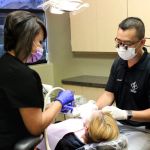1. Understanding Teeth Grinding and Its Effects
Teeth grinding, also known as bruxism, is a common condition that occurs often at night and during sleep. It can cause jaw pain, tooth damage, headaches, and disrupted sleep quality. Understanding the causes—such as stress, misaligned teeth, or sleep disorders—is the first step toward effective prevention.
2. Natural Methods to Prevent Teeth Grinding
There are several natural ways to reduce or prevent teeth grinding without medication. Techniques include practicing relaxation exercises like deep breathing or meditation before bedtime to lower stress levels. Incorporating magnesium supplements may also help relax muscles and reduce clenching. Additionally, maintaining good sleep hygiene and avoiding stimulants like caffeine and alcohol in the evening can lessen grinding episodes.
Jaw Exercises and Muscle Relaxation
Gentle jaw stretches and massages before sleep can release tension and reduce the likelihood of grinding.
3. Sleep Care Tips to Reduce Bruxism
Proper sleep care plays a vital role in managing bruxism. Establishing a consistent sleep schedule, creating a calming bedtime routine, and ensuring a comfortable sleep environment can significantly impact grinding frequency. Using a mouth guard prescribed by a dentist can also protect teeth while allowing natural prevention methods to work.
4. Real-Life Examples of Successful Prevention
Emily, a patient at Dentistry Toothtruth, shared how integrating nightly meditation and jaw exercises helped reduce her teeth grinding substantially. Another case involved Mark, who combined dietary changes and improved sleep hygiene with a custom mouthguard, resulting in pain-free mornings and better sleep.
5. When to Consult a Dental Professional
If natural methods do not ease symptoms or if you notice severe tooth wear or persistent pain, consulting a dental professional is crucial. Early intervention can prevent irreversible damage and help tailor a comprehensive treatment plan.
6. How Dentistry Toothtruth Can Help
Dentistry Toothtruth offers expert assessment and personalized solutions for teeth grinding. From custom night guards to professional advice on natural prevention, their team supports you in protecting your smile and improving sleep quality effectively.
Explore Dentistry Toothtruth’s resources and services to find the best options for managing teeth grinding naturally at night and during sleep care.







 Thomas Pham Dentistry4.0 (26 review)
Thomas Pham Dentistry4.0 (26 review) Ingleside Dental SF4.0 (685 review)
Ingleside Dental SF4.0 (685 review) Family and Cosmetic Dentistry of Randolph, Dr. Anthony Fusco & Dr. Joseph Caravano5.0 (280 review)
Family and Cosmetic Dentistry of Randolph, Dr. Anthony Fusco & Dr. Joseph Caravano5.0 (280 review) Mark J. Mele, DMD5.0 (86 review)
Mark J. Mele, DMD5.0 (86 review) Dr. Nathan Hammond4.0 (346 review)
Dr. Nathan Hammond4.0 (346 review) Dr. Donovan Hansen4.0 (22 review)
Dr. Donovan Hansen4.0 (22 review) The Importance of Oral Health Education During Pregnancy for a Healthy Pregnancy
The Importance of Oral Health Education During Pregnancy for a Healthy Pregnancy Best Tips for Brushing Your Teeth Properly for Healthy Gums: Essential Techniques for Oral Health
Best Tips for Brushing Your Teeth Properly for Healthy Gums: Essential Techniques for Oral Health Why Skipping Dental Checkups Can Lead to Bigger Oral Health Problems
Why Skipping Dental Checkups Can Lead to Bigger Oral Health Problems Advantages of Porcelain Dental Restorations
Advantages of Porcelain Dental Restorations How Can Diabetes Cause Tooth and Gum Problems? Preventing and Managing Oral Health Issues
How Can Diabetes Cause Tooth and Gum Problems? Preventing and Managing Oral Health Issues Healthy Habits for Promoting Good Oral Health and Hygiene: Tips for a Healthy Smile
Healthy Habits for Promoting Good Oral Health and Hygiene: Tips for a Healthy Smile